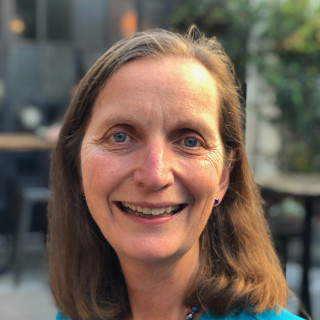
My best friend’s mother passed away this morning.
She was the woman I called my faux mother. You know, the friend whose house you spent more time in than your own? The one whose oldest child is named after you, and your oldest child is named after her? That best friend.
I went to their house to help. How does one help?
My friend is vegan, so I found vegan donuts. I got real donuts too, because no one really believes that flax seed is an adequate substitute for eggs. But what else?
Words alone are insufficient to recognize and express sorrow, love, and relief. But I could be present.
Faux mother was a week shy of ninety. She had lived a great life. She was married to a handsome and brilliant architect who preceded her in death. She raised two delightful children and saw her two granddaughters grow into beautiful young women. She lived in a gorgeous home and was well-loved.
Her passing came not as a shock, but as a milestone in the circle of life. She had been failing, and failing precipitously the last week. My friend worked remotely during this week to be there for her mom. Hospice nurses, blessed souls that they are, had come to visit, and had shed tears. They had morphine and lorazepam. Faux mom could stay at home.
As wonderful as it is to be able to spend the final days at home, no one was truly comfortable. Waiting is not easy.
The nurses recommended that my friend check on her mother every four hours during the night. Thus, at 1 a.m., my dear friend went to check to see if her mother needed more morphine or help moving in bed. She had gone.
My friend, not a doctor, did not call hospice at 1 a.m., She saw no reason to wake a nurse. Instead, she tried to rest, albeit fitfully, until the morning.
When she did call, she was told, “You should have called immediately!”
Taken aback, my friend replied, “I’m sorry. I don’t deal with death often.”
“Well, we need to come verify the death.”
My friend responded, “She is still here.”
As she related this conversation to me, I shuddered a bit. Of course, the person answering the phone is doing their job. One would hope a hospice receptionist would have a compassionate script to follow. How much training to they receive? What would a prudent adult say to a child (adult or not) calling to say their mom had died? If that is the nature of many of your calls, do you become inured to the gravity of the call?
Step back. As physicians, do we have a script to follow?
As a medical student, a compassionate attending may talk to us about difficult conversations. Too often, however, this doesn’t happen at all. Despite the adage, “see one, do one, teach one” does not apply in the case of death. We don’t see or teach, we just do. We learn by being thrown in the deep end and having to sink or swim. Often, we sink. Think about the depiction of our profession at the death bed in the omnipresent medical TV show. A Norman Rockwell image of a kindly physician holding the bereaved hand isn’t the first thought you had?
Over the course of the morning, a lovely hospice nurse came and ascertained that, yes, faux mother was still dead. Then a nice couple came to take the body and have the family sign papers.
“Doctors don’t learn how to fill out death certificates,” the man noted as he produced the paperwork. My knee-jerk response was to want to say, “Oh yeah?”
I remained silent.
He has a point, I thought to myself, the appropriateness of that comment notwithstanding. As I recall, we fill death certificates out by reading the instructions. Early in my practice, sometimes the coroner would send them back and ask for more details.
Few of us do death well. Maybe there is no way to do death well, but I am certain there are ways that are better than others. As with all of our care, we should take a step back and ponder. What do I want to hear when I am in that situation? Sometimes presence is all that is needed. Listen, love, and be there.
Lisa Masson, MD, is a board-certified primary care physician in Los Angeles. Her passion for primary care motivated her to take on an active role in clinical informatics. She is a 2018–19 Doximity Author and a proud mother of three daughters.






